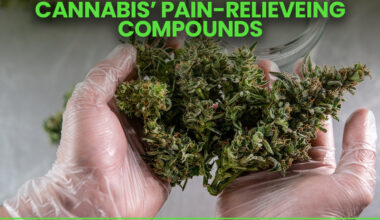
Bloomberg news has obtained a letter from a “top” Department of Health and Human Services (HHS) official recommending that the US Drug Enforcement Administration reclassify cannabis from a Schedule I to a Schedule III controlled substance under federal law.
The letter, dated August 29th, comes ten months after the Biden administration requested “the Secretary of Health and Human Services and the Attorney General to initiate the administrative process to review expeditiously how marijuana is scheduled under federal law.” While campaigning for the Presidency, Biden repeatedly promised that he would seek to reschedule marijuana.
The HHS recommendation now goes to DEA, which will conduct its own scientific review. In the past, the DEA has employed its own five-factor test (which differs from HHS’ criteria) to determine whether or not cannabis ought to be rescheduled. On four prior occasions, the agency has determined that cannabis failed to meet any of its five criteria. In 2016, for instance, the agency concluded, “Based on the established five-part test for making such determination, marijuana has no ‘currently accepted medical use’ because … the drug’s chemistry is not known and reproducible; there are no adequate safety studies; there are no adequate and well-controlled studies proving efficacy; the drug is not accepted by qualified experts; and the scientific evidence is not widely available.”
At that time, the agency also claimed that international treaty obligations prevented cannabis from being placed in any Schedule other than Schedule I or Schedule II.
The DEA “has the final authority to schedule or reschedule a drug under the Controlled Substances Act.”
In general, Schedule III controlled substances, like anabolic steroids, are FDA-approved drugs that are uniformly regulated by the federal government and are only legally available by prescription.
In response to the leaked letter, NORML’s Deputy Director said: “It will be very interesting to see how DEA responds to this recommendation, given the agency’s historic opposition to any potential change in cannabis’ categorization under federal law. Further, for decades, the agency has utilized its own five-factor criteria for assessing cannabis’ placement in the CSA — criteria that as recently as 2016, the agency claimed that cannabis failed to meet. Since the agency has final say over any rescheduling decision, it is safe to say that this process still remains far from over.”
NORML has long called for removing cannabis from the CSA altogether in a manner similar to tobacco and alcohol in order to resolve existing conflicts between state and federal marijuana laws. Armentano re-emphasized that position, stating: “The goal of any federal cannabis policy reform ought to be to address the existing, untenable chasm between federal marijuana policy and the cannabis laws of the majority of US states. Rescheduling the cannabis plant to Schedule III of the US Controlled Substances Act fails to adequately address this conflict, as existing state legalization laws — both adult use and medical — will continue to be in conflict with federal regulations, thereby perpetuating the existing divide between state and federal marijuana policies.”
He added: “Just as it is intellectually dishonest to categorize cannabis in the same placement as heroin, it is equally disingenuous to treat cannabis in the same manner as anabolic steroids. The majority of Americans believe that cannabis ought to be legal and that its hazards to health are less significant than those associated with federally descheduled substances like alcohol and tobacco. Like those latter substances, we have long argued the cannabis plant should be removed from the Controlled Substances Act altogether, thereby proving state governments — rather than the federal government — the ability to regulate marijuana in the manner they see fit without violating federal law.”
Additional information is available from NORML’s fact-sheet, “A Brief History of Cannabis Rescheduling Petitions in the United States” and in NORML’s op-ed, “Cannabis Must Be Removed from the Controlled Substances Act to Resolve State/Federal Conflicts.”
Related
Medical Disclaimer:
The information provided in these blog posts is intended for general informational and educational purposes only. It is not a substitute for professional medical advice, diagnosis, or treatment. Always seek the advice of your physician or other qualified healthcare provider with any questions you may have regarding a medical condition. The use of any information provided in these blog posts is solely at your own risk. The authors and the website do not recommend or endorse any specific products, treatments, or procedures mentioned. Reliance on any information in these blog posts is solely at your own discretion.






